Twenty-eight people were killed in Israel by Iranian missile attacks during the 12-day conflict between Jerusalem and Tehran — the oldest of whom was a 95-year-old Holocaust survivor, and the youngest of whom was a 7-year-old Ukrainian cancer patient.
Israel launched a preemptive attack in the early morning hours of June 13 on Iranian nuclear and ballistic missile facilities and key targets, to counter Iran’s avowed threat to destroy the Jewish state. Iran responded by firing approximately 550 ballistic missiles and around 1,000 drones at Israel. Most of the missiles were intercepted, but 36 ballistic missile impacts were reported in populated areas, including multiple apartment buildings, as well as on critical infrastructure sites, including a power station in southern Israel and an oil refinery in Haifa.
The Health Ministry said 3,238 people were treated in hospitals around the country for injuries sustained due to the Iranian attacks. Around 240 buildings sustained serious damage, leaving over 13,000 Israelis displaced. Twenty-seven of those killed were civilians, and one was an off-duty soldier at home with his family.
June 13, Ramat Gan
On the first day of the war, Eti Cohen Angel, 74, was killed when a ballistic missile slammed into a residential building in Ramat Gan. Her boyfriend was seriously wounded in the strike but survived.
She worked as a medical pedicurist and left behind four daughters. In an interview with La’Isha magazine in 2011, Cohen Angel spoke about her childhood growing up in Tel Aviv, including meeting Frank Sinatra when he visited Israel. Only later in life, after her divorce, she said, did she learn how to rediscover her inner child, “to feel playful, cheerful, to know how to get out of complicated situations and to approach everything with humor.”
June 14, Rishon Lezion
Early Saturday morning, Yisrael Aloni, 73, and Yevgenia Blinder, 74, were slain after a building in Rishon Lezion was struck by a missile.
Aloni worked as a barber for more than 50 years and was survived by his three children, Eran, Ricki, and Uri, and 11 grandchildren, his family said. His son, Eran, told the Kan public broadcaster that his father “was a wonderful person… everyone in Rishon knows him, he loved helping everyone, you couldn’t say one bad thing about him.”
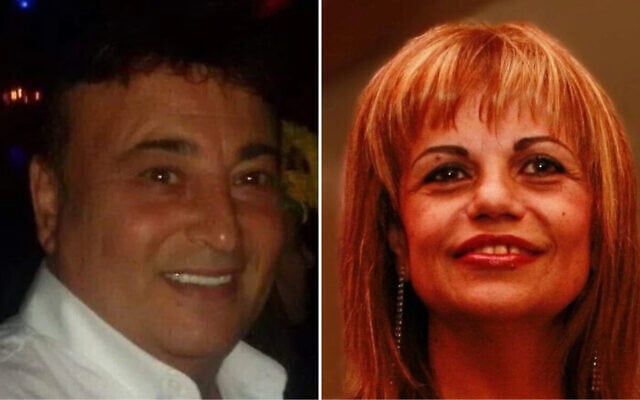
Blinder moved to Israel in 1992 from Ukraine and settled in Rishon Lezion, according to the municipality. She was a surgeon by training who continued to work as a doctor in Israel after her aliyah, the city’s mayor said, including as a geriatric specialist at an old age home in Tel Aviv, until she retired. Her niece, Yulia, said she was “the perfect aunt.”
June 14, Tamra
Late Saturday night, four women in the same family were killed when a missile struck their family home in the northern city of Tamra. They were named as Manar Al-Heija Khatib, 45, her daughters Shada, 20 and Hala, 13, as well as Manar Diab Khatib, a sister-in-law of the other Manar.
Both Manar Al-Heija Khatib and Manar Diab Khatib worked as teachers, their families said.
Raja Khatib, who lost his wife and two of his daughters, as well as his sister-in-law, told Ynet that “I lost the most beautiful flowers of my life.” His wife, he added, was “a teacher, a successful and a wonderful woman who raised our children in the best way possible.”
Ihab, the widower of Manar Diab Khatib, said his wife was “a professional and honest educator, and everyone loved her. I always heard positive and joyful comments about her.”
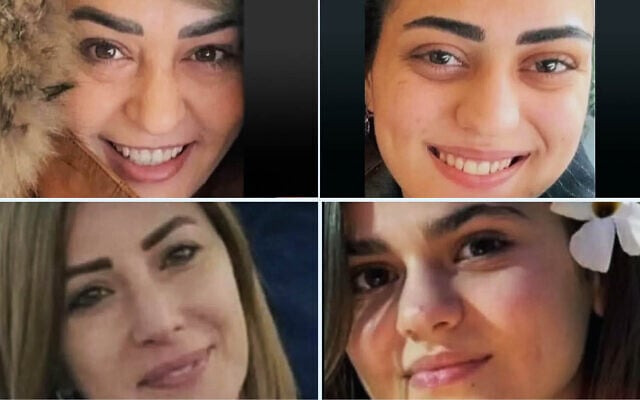
June 15, Bat Yam
Just a few hours later, an Iranian missile struck an apartment building in Bat Yam, taking the lives of nine civilians, the deadliest single strike of the 12-day conflict.
The nine victims included five Ukrainian nationals who had moved to Israel in 2022, in order to seek cancer treatment for Anastasia Buryk, 7, who was slain along with her mother, Mariia (Masha) Pieshkurova, 30, her grandmother, Olena Pieshkurova, 54, and two cousins, Illia Pieshkurov, 14, and Kostiantyn Tutevich, 10.
Artem Buryk, Anastasia’s father, remained in Ukraine fighting the Russian invasion. He told the Daily Mail that his young daughter “was like a little angel. Some kids get fussy, throw tantrums, cry hysterically when you take something from them — but not her. She was very calm. Her nature was just like my mother’s — gentle, quiet. She was never one to cry or complain.”
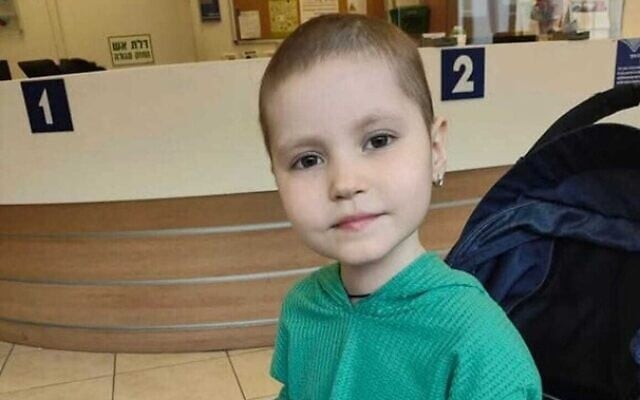
Khrystyna Chanysheva, a friend of the family, said that Mariia “did everything for her little girl… she dedicated her life to her, moved to Israel to get her full treatment.”
Hanna Pieshkurova, the mother of Kostiantyn and Illia, told The New York Times that she let her children move to Israel to escape the war in Ukraine: “Because of the shelling, my children were crying and I decided to let them go.”
A representative from Chance4Life, the organization that helped bring the family to Israel, told Haaretz that “Kosta, the younger boy, was always playing in the children’s group that our volunteers organized to free up the parents’ time a little, but Illia always used to come to our events for adults. He was very intelligent and really enjoyed talking to adults. He liked to tell all kinds of interesting things.”
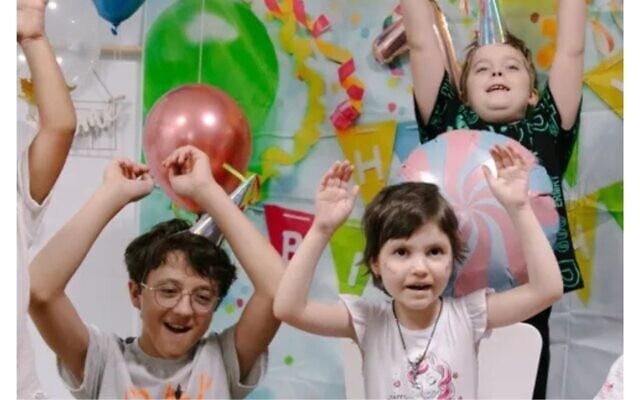
Also killed in Bat Yam were Efrat Saranga, 44, Michael (Miki) Nahum, 61, Meir (Miron) Vaknin, 56 and Belina (Bella) Ashkenazi, 94.
Belina’s husband, Haim Ashkenazi, who is 100 years old, survived the strike. The couple both made aliyah from Bulgaria when they were young, after surviving the Holocaust, and met in Israel — ultimately spending around 75 years of their lives together. Belina worked as a model and a seamstress, their family said. The couple’s daughter, Ahuva, told Haaretz that “they had a love like in the movies. He loved her so much.”
Vaknin is survived by his wife, Keren, and their three children, who were all home, but managed to emerge from the strike. Vaknin was a huge fan of the Hapoel Tel Aviv soccer team and worked in maintenance. His neighbor, Tomer, told the Mako news site that “Miro was a good neighbor, a guy who smiles at everyone and respects everyone. He was a great guy… he has good kids, well educated, he made sure they had everything.”
Nahum, who managed a clothing store in Ashdod, had moved back to his childhood home in Bat Yam after his divorce, and was survived by his four children. His close friend, Gil Karni, told Israel Hayom that, “first and foremost, Miki was a very, very dedicated dad to his kids. He always worked from morning to night to provide for his family. That was his top priority. He wasn’t a hedonistic person, he didn’t think about himself.”
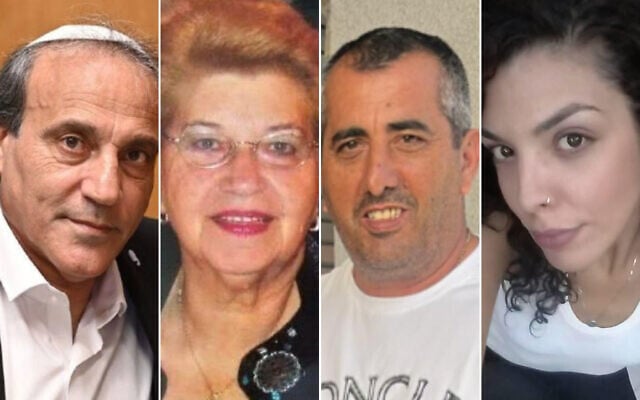
Saranga, a native of Beersheba, was survived by her husband, Ofir. She had a degree in art from the Sapir Academic College in Sderot. Her friend, Galit, told Haaretz that “she was such a beautiful woman on the outside – the photo doesn’t do her justice. Like a glowing angel. And her inner beauty matched her outer beauty. She was always laughing, joking about life.”
June 16, Petah Tikva and Bnei Brak
In the early hours of June 16, the fourth day of fighting, a missile struck an apartment building in Petah Tikva, killing four people: Daisy Yitzhaki, 85, Ivette Shmilovitz, 95, and the couple Hadassah and Yaakov Belo, both 77.
Yitzhaki immigrated from Iraq when she was young. Her family said she did not want to sleep in the reinforced room because that is where her husband had drawn his last breaths just two months earlier. When the siren rang, Yitzhaki did not make it to the shelter in time, and her caregiver was also seriously wounded. Her daughter, Ronit, told the Kan public broadcaster that her mother “was a quiet woman, who wasn’t looking for anything special except to raise her family with love and joy. She was a wonderful grandmother to all her grandchildren.”
Shmilovitz, a native of Romania and a Holocaust survivor, moved to Israel in 1973, her family said. She lost both her husband and her only daughter in recent years, and was survived by three granddaughters and four great-grandchildren. Her granddaughter, Shirly Master Hout, wrote on Facebook that her grandmother was “an Iron Woman. She had such a tough life; she lost all those close to her, her daughter. She survived world wars and Israeli wars. And she always kept her head up… She was always in the heart of things, she never gave up her heels and hair dye, espresso with ice cream, she’d gossip with her friends on WhatsApp.”
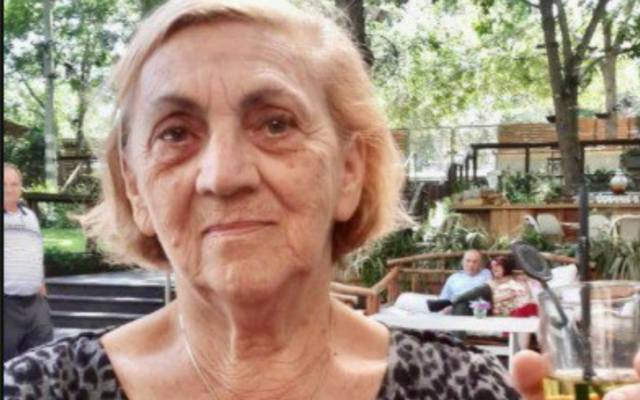
In the same barrage of missiles that Monday morning, Avraham Cohen, 75, was killed in a direct impact in Bnei Brak. His neighbor, Ruti, told Kan that he was predeceased by his son. “Every day, he would come and sit with us here, bring food, we’d eat and drink together. He was a good person, he’d always say that ‘things will be OK.'”
June 16, Haifa
A few hours later, three employees of the Bazan oil refinery were killed when missiles targeted the Haifa Bay. They were named as Igor Fradkin, 50, Uri Levy, 58, and Daniel Avraham, 59. They were in a safe room but were trapped by the ensuing fire and died of smoke inhalation.
Fradkin, from Kiryat Ata, moved to Israel in the 1990s from Kazakhstan and met his wife, Ludmila. Together, they had six children and just welcomed their first grandchild into the world last year. Fradkin worked for Bazan for 17 years, his brother, Konstantin, told Ynet, and he was very devoted to the job.
Avraham, from Kiryat Motzkin, is survived by his wife, Iris, and their two children. He worked in the energy sector for more than 30 years, his family said. Kiryat Motzkin mayor Tziki Avisar said he was “a family man in every meaning of the world. An optimistic and modest man, who always had a smile and was always ready to help others.”
Levy, from Haifa, is survived by his wife, Sigal, his children Gal, Roi, and Ido, and a grandson, Ari. His family told Ynet that he “dedicated his life to his family and loved them endlessly. Uri loved life, even in difficult times he always knew how to look on the bright side.”
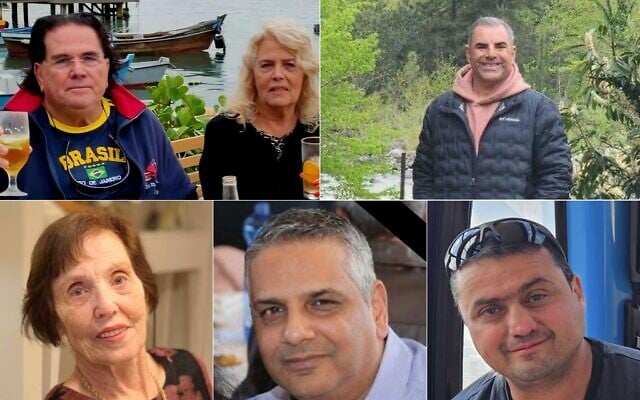
June 24, Beersheba
For the next week, there were no fatalities in Iranian strikes in Israel, until the morning of June 24, hours before the ceasefire went into effect, when a missile hit a building in Beersheba and killed four people: Naomi Shaanan, 73, Michal Zacks, 50, her son, off-duty IDF soldier Cpl. Eitan Zacks, 18 — the only non-civilian killed in Israel — and Eitan’s girlfriend, Noa Boguslavsky, also 18.
Igor, Michal’s husband and Eitan’s father, was elsewhere in the house and wounded in the strike but survived. The couple’s other child, Eliana, was not home at the time.
Eitan had just recently enlisted in the IDF and was still undergoing training to join the elite Multidomain Unit. Before he enlisted, he had modeled clothing for the Shenkar College’s fashion design school, and also loved playing basketball. Noa, from the southern city of Arad, was just finishing her senior year of high school.
Eliana told Kan that her mother “always said that she lived for us and we were her life. She was a warrior mother who, just like my brother, knocked down every wall to reach her goals, to spoil us and take care of us even when it wasn’t needed. She was always looking for ways to be happier.”
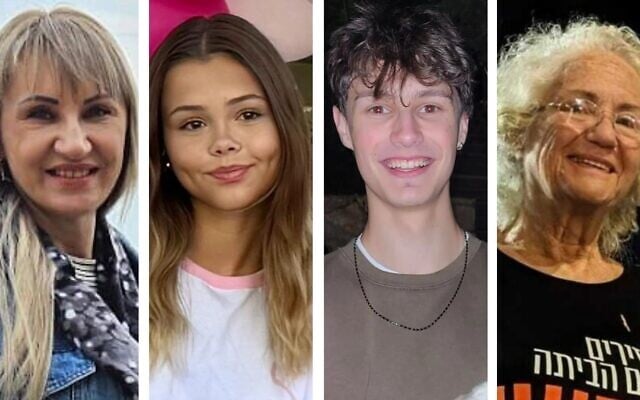
Her brother, she said, “had a heart of gold, who always thought of others before he thought of himself… he fought to enlist in the unit he wanted out of a huge love for this country.” He and Noa, she said, “were soulmates — they traveled all around together and they loved to bake and cook together.” Noa’s close friend, Or, told a local news site that she “looked very gentle and quiet, but when you got to know her, you saw how funny she is, a wonderful person, who never did bad to anybody.”
Shaanan, who was born in Haifa, worked for years as a librarian at Ben Gurion University in the city until she retired. A longtime peace activist, she was remembered by loved ones for her 20 months of steadfast activism calling for the hostages in Gaza to be returned home — including hours before she was killed. According to Israel Hayom, she is survived by two siblings and five nieces and nephews.
“She was a listening ear, someone to talk to about everything, and a social activist,” her close friend, Sarit, told Army Radio. “She was everything to me.”

